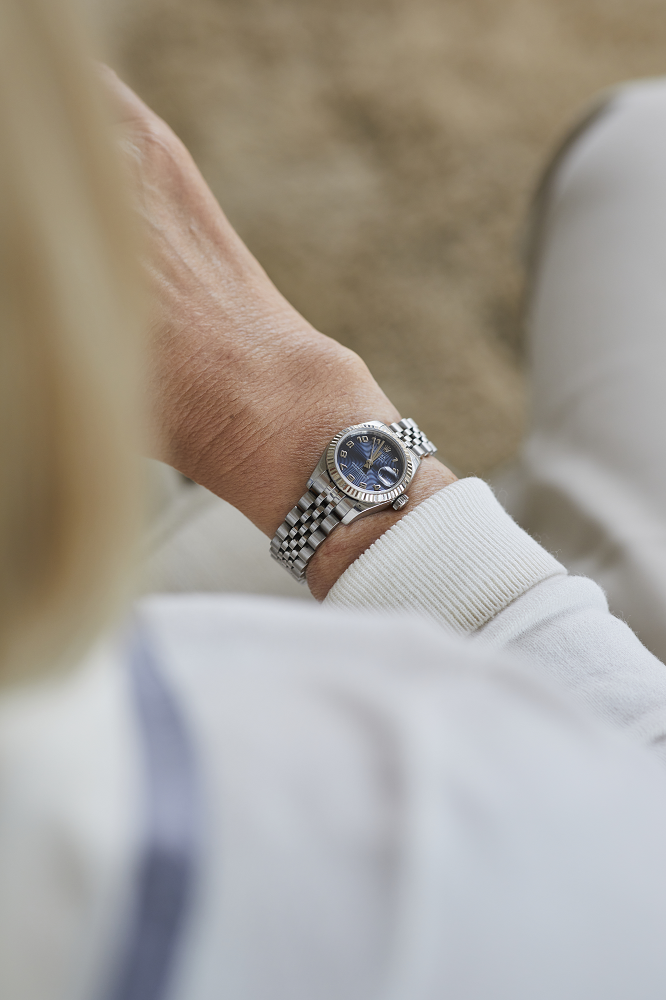Are you a collector or investor?

Do you consider yourself a collector or an investor? Many buyers of precious items would firmly consider themselves in one camp or the other. But the two can overlap, and you may fit somewhere in the middle. So, what differentiates the two?
Whether it’s art or antiques, watches or handbags, a collector buys primarily for personal enjoyment and excitement. They tend to keep and display their acquisitions, often delighting in nostalgia and history, whether that’s a 1917 George V Sovereign, vintage arcade machine or a 1960s Rolex.
“Collectors are always looking for the next rarest thing to add to their collection,” says Mark Smith, director at one of NFU Mutual’s carefully selected valuation partners, Quastel Associates.
Because profit isn’t their primary goal, the collector may bide their time and choose whatever sculpture, bottle of wine or piece of jewellery that appeals to them and fits their budget.
Increasingly, says Mark, younger people are taken by this impulse: “Previously, you had to know to go to a certain dealer or auction house. During the pandemic, because live auctions weren’t possible, it accelerated buying online, which is a lot more accessible to a younger demographic.”
On the other hand, while some investors take enjoyment out of their ownership of a piece, such as a work of art they hang on the wall while it’s in their possession, for others it's a transaction: they might shut away a bottle of whisky in the knowledge they’ll never taste it, or buy a percentage of an artwork that remains in an air controlled warehouse, until the time comes to sell.
Mark says: “I’ve known investors in artworks who don’t even like the pieces they buy. It’s an entirely different perspective.”
A difference in timing
Typically, collectors have a longer-term perspective, while an investor may nip in and out, seeking to buy low and sell high, as they seek to diversify their investment portfolio beyond traditional assets like stocks and shares.
Take luxury watches, for example, which in recent years have been booming as both an investment and collector’s item. Those with a passion for seeking out time pieces may be drawn to their complexity or rarity.
Mark says: “A watch collector might be more interested in premium watches from the 1960s or 1970s. But an investor might favour a more modern watch, which can sell more easily as there is more demand for them.”
When passion and profit merge
But for all the potential differences between collectors and investors, many people who buy precious items are a bit of both. They might invest, but take a great interest in the history of their collection; or collect, but with a keen eye on any potential profit for them or their loved ones in time to come.
Whatever your reasons for acquiring the likes of luxury watches, art, or jewellery, you’ll need to protect them, and keep them properly insured. Accurate valuations are essential to safeguard against potential underinsurance, when the amount you’re covered for by your insurance is less than the cost of replacing or repairing your items.
So, make sure you have your collection valued on a regular basis, as valuations can go up or down depending on market trends and you could find yourself underinsured if something were to happen to them unexpectedly. You must also make sure that you inform us should the value of your collection change.
As part of our NFU Mutual Bespoke Home Insurance we work with trusted partners who can, for a fee, provide a valuation for your most precious belongings - whether you consider them a profit generator or simply an enduring source of pleasure.
NFU Mutual Bespoke Home Insurance is specifically designed to protect high value properties with over £150,000 worth of contents, fine art and collections. So, whether it’s a beautiful home, stunning gardens, original art or designer jewellery, we can help you feel assured that your most cherished possessions are protected.

NFU Mutual Bespoke Home Insurance
NFU Mutual Bespoke Home Insurance is specially designed to cover high-value homes and belongings such as expensive jewellery or watches, which may not be fully protected by a standard home contents insurance policy. Tailored around you and your lifestyle, our cover helps ensure that your most valuable possessions are in safe hands.